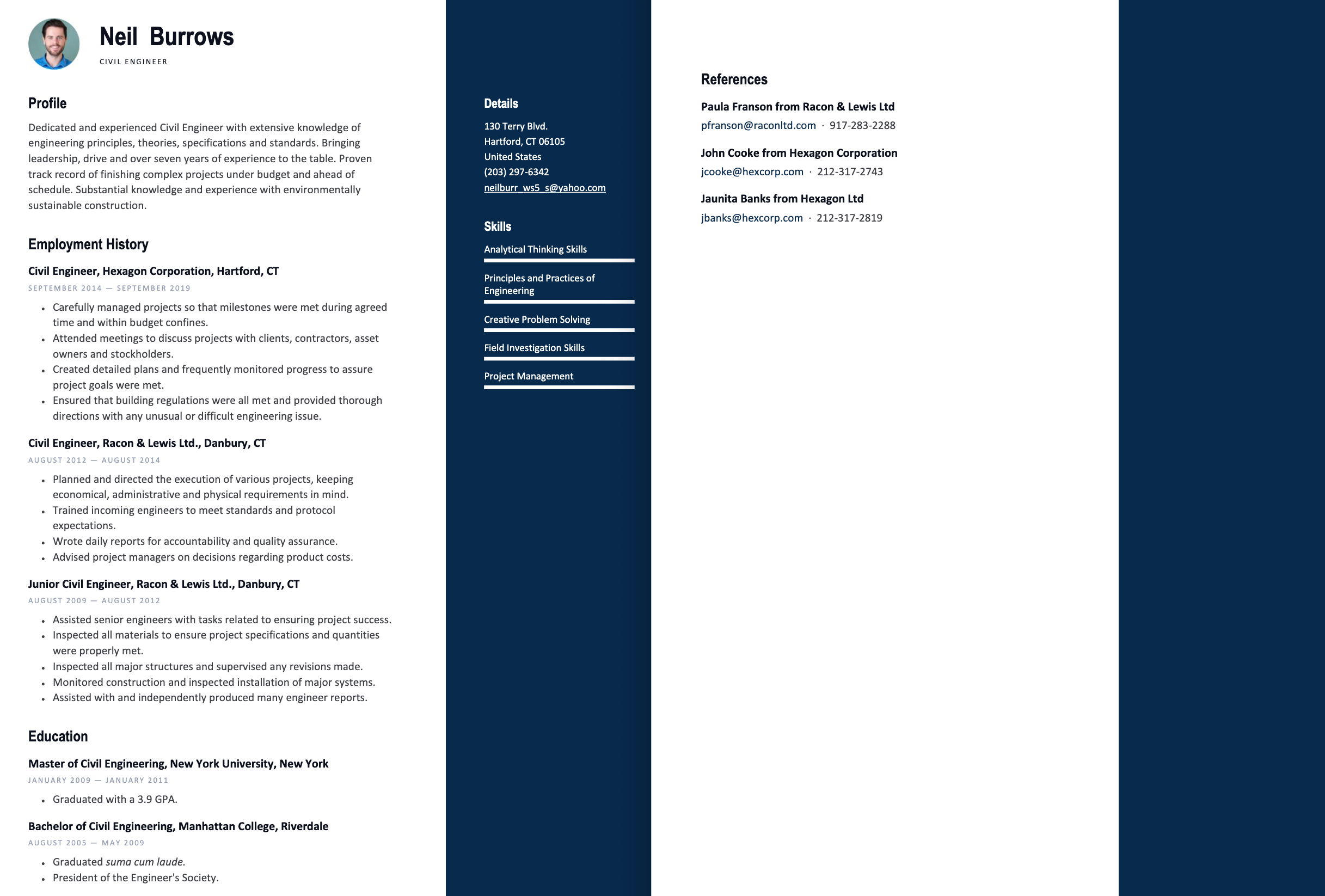Should you put references on a resume?
While a list of strong references can help your job search, you should still consider one on your resume.
Suppose you can easily impress potential employers with a good resume and convince them that you are the best person for the job; congratulations. But you can still get away with poorly prepared references. Make a great Resume for yourself with the help of best online Resume Builder.
While it’s important to have people who can attest to your skills and competencies in a previous role, offering a list of references on your CV early on during a job search is only sometimes the best policy.
It used to be standard protocol to include references on a resume. Two references used to be the norm. However, thinking about it has changed. Many choose to leave these details aside; after all, the resume has the professional objective of getting the first interview, so references are optional at the beginning of the recruitment process.
When the job posting asks for references, follow the instructions in the job posting.
So if your resume still contains references, it might be time to eliminate them. But in cases where you get to a point in the hiring process and the manager asks you to provide a list of people, know the best way to introduce them.
How to put references on the CV
While writing references on your CV is not recommended, you may be asked to provide a list.
In academia, for example, recruiters prefer to know about the candidate through the curriculum vitae; at the same time, resumes are usually brief and limited to one or two pages; a CV can be much longer and include more details about your life’s work.
As such, it’s perfectly acceptable to include a reference sheet on your resume; professionally format it to present the best possible image.
Regardless of the medium in which you intend to work, to develop the list of references, you must know the following:
If the job listing asks for a CV and a list of references, please create a separate listing and submit two documents;
- Include the list of people on the last page of the CV, keep all references on a single page, and opt for 3 to 5 names
- Clearly state that this is a reference sheet by placing a title in the centre of the page that shows this to the recruiter, e.g. “Reference List for XYZ Company.”
- First, add your contact information, such as name, address, city, state, zip code, phone and email, each on a separate line.
- When writing references, include the name, title of the person, the professional relationship they had (e.g. team member, client, manager), address, phone and email
- Contact information can be right or left-justified according to your personal preference.
- Insert two spaces after the first description and add another reference using the same format
- If your prospective employer asks for a specific number of references, please include that number, showing that you know how to follow directions.
Another way to mention that you can submit a list of people to recommend you is to state on your resume that “References are available upon request”.
Who should you list as a reference?
When it is necessary to include references on the CV, candidates should typically choose their former employers or more recent business acquaintances. However, as the process progresses, you might think of people who can help you emphasize the most important characteristics of the job.
The first thing to do is talk to your potential references and get their permission before including them in the document; let them know they can be contacted at some point. This also gives them time to think of positive things to say about you.
When you contact these people, always ensure you have the correct address and confirm your email and phone number, as you will need to provide accurate information on your resume.
Personal references are not advisable because they are more likely to be positive.
Good references include former employers, business acquaintances, teachers, managers, supervisors, customers and suppliers, or other non-personal contacts you’ve worked with. If you have little work experience, it’s wise to use one of your tutors.



